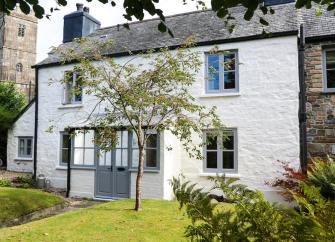Mary Tavy has a strong lead, copper, silver and tin mining heritage and was once home to the world's largest copper mine, Wheal Friendship. The remains of old mine workings can still be seen in the area, such as the old engine house for Wheal Betsy, while in the centre of the village, The Old Court House, where the rights to mine were auctioned from a balcony, can still be viewed.
The village pub, The Mary Tavy Inn, has been serving customers for around 400 years. Its bar and restaurant offer a warm and welcoming atmosphere, perfect for a relaxing, convivial evening in the company of friendly locals.
Properties in the village are powered by water from a local hydroelectric power station, which has been generating green electricity since the 1930s.
May Tavy is about a mile apart from Peter Tavy, another small village. There is a lovely walk between the two villages on a delightful bridle path with a bridge crossing the River Tavy. Other idyllic walks include Tavy Coombe, where the river has been partly dammed to create an outdoor pool for a spot of wild swimming. Being on the edge of Dartmoor, there are many moorland walks to explore nearby.
On a more ghoulish note, the ghost of Lady Howard, notorious for the murder of her husbands' is said to ride through the village In a coach made of their bones.
Several historic houses and churches are easily accessible from Mary Tavy. Places like Lydford Castle, an imposing medieval fortification, and Buckland Abbey, the former home of Sir Francis Drake, beckon history enthusiasts and curious travellers alike.
In summary, Mary Tavy embodies the essence of rural Devon, offering a retreat that seamlessly blends convenience and history. Its amenities, historic sites, welcoming church, pub, and local shops combine to create an authentic English village experience. Moreover, its proximity to renowned attractions in Devon makes it an ideal destination for visitors seeking to immerse themselves in the cultural and natural treasures of Dartmoor and West Devon.
